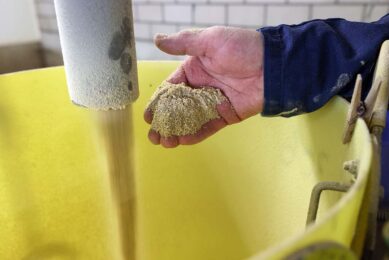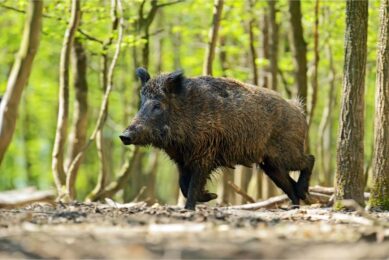Beet pulp can help reduce boar taint

It is possible to reduce boar taint using nutritional measures – so much is clear at Vitelia, a Netherlands-based feed company. They ran successful trials using beet pulp.
Additional advantages of using beet pulp is that the animals are more sedate. Also, there are indications of improvement of the lean meat percentage as well as gut health.
That, in a nutshell, are the conclusions of research by Gerard Raedts, head of nutrition at feed company Vitelia. The company did the trial earlier this year in cooperation with pig producer VOF Michiels, research and consultancy agency Connecting Agri&Food, meat processor Vion Food Group and Sensus.
In a news release on the website of Connecting Agri&Food, it is stated that initial research to new diets started in 2016 and in 2017 the cost effectiveness of this feed was scrutinised.
What exactly did you research?
“Last year we concluded that, using inulin in feed, it is possible to achieve a strong reduction in the percentage of tainted carcasses in the entire male pigs delivered to the market. As adding inulin always adds several euros to 100 kg of feed, we started to look for an alternative to inulin in the feed – an alternative which also would reduce the percentage of boar taint. We tested 4 diets, one containing 100% grains; one with beet pulp, one with inulin and a control group with a standard diet.”
How did you test that?
“On 2 farms (with in total 2,200 pigs, ed.) we tracked about 500-600 animals and in the last week prior to delivery to the slaughterhouse, the different compound feed diets were presented to the animals. Vion kept a record of boar taint and carcass quality. Video footage was made of the animals – and that was analysed.”
What did the trial tell you?
“The diet containing 100% grains did not do anything to reduce boar taint and we already knew that the diet containing inulin would work – and that was confirmed once more. In the trials we now showed that a diet with beet pulp can take care of a reduction of boar taint with almost 60%. The farms went from almost 3% of the animals having boar taint to below 1%. Although the video footage did not show this, the pig producers unanimously confirmed that the animals had been more sedate and we have indications that the animals yield more lean meat.”

Prize-winning at EuroTier: The Belgian company Dumoulin also developed a feed to avoid boar taint
Beet pulp will also increase the cost price of feed. How can pig producers earn that investment back?
“Adding beet pulp currently leads to a cost price rise of about € 3 per pig. Currently, slaughterhouses do not pay a premium to pig producers in case they deliver fewer pigs with boar taint. That is why there is no major incentive to adjust the feed in case this will lead to a higher cost price. Should the new diet also give health benefits, pig producers are likely to be more inclined to do so. It would be great in case we could do a follow up trial to that.”
 Beheer
Beheer








 WP Admin
WP Admin  Bewerk bericht
Bewerk bericht